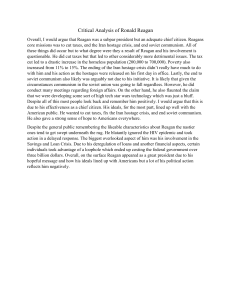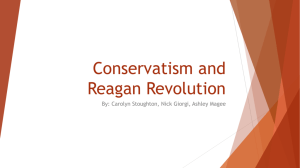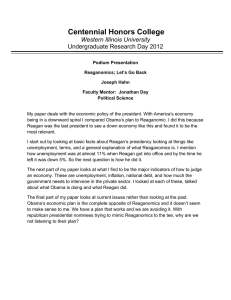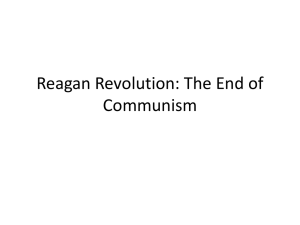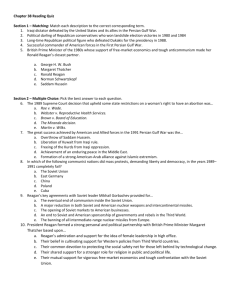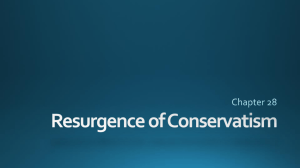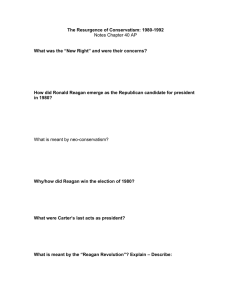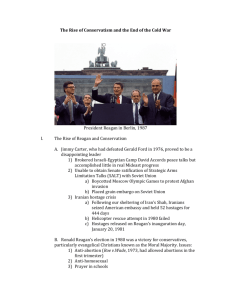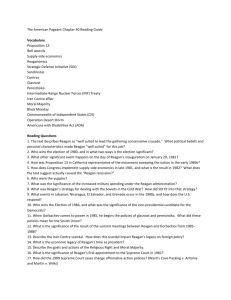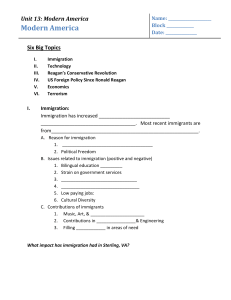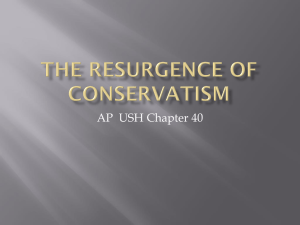Significant American History Events 1973--present
advertisement
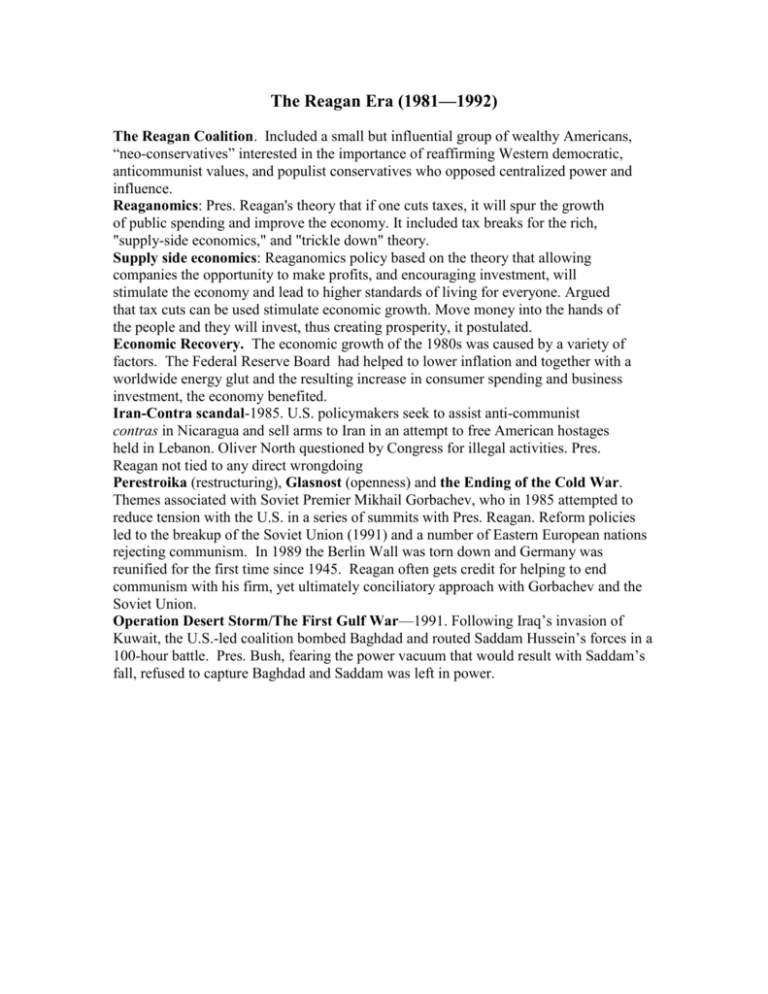
The Reagan Era (1981—1992) The Reagan Coalition. Included a small but influential group of wealthy Americans, “neo-conservatives” interested in the importance of reaffirming Western democratic, anticommunist values, and populist conservatives who opposed centralized power and influence. Reaganomics: Pres. Reagan's theory that if one cuts taxes, it will spur the growth of public spending and improve the economy. It included tax breaks for the rich, "supply-side economics," and "trickle down" theory. Supply side economics: Reaganomics policy based on the theory that allowing companies the opportunity to make profits, and encouraging investment, will stimulate the economy and lead to higher standards of living for everyone. Argued that tax cuts can be used stimulate economic growth. Move money into the hands of the people and they will invest, thus creating prosperity, it postulated. Economic Recovery. The economic growth of the 1980s was caused by a variety of factors. The Federal Reserve Board had helped to lower inflation and together with a worldwide energy glut and the resulting increase in consumer spending and business investment, the economy benefited. Iran-Contra scandal-1985. U.S. policymakers seek to assist anti-communist contras in Nicaragua and sell arms to Iran in an attempt to free American hostages held in Lebanon. Oliver North questioned by Congress for illegal activities. Pres. Reagan not tied to any direct wrongdoing Perestroika (restructuring), Glasnost (openness) and the Ending of the Cold War. Themes associated with Soviet Premier Mikhail Gorbachev, who in 1985 attempted to reduce tension with the U.S. in a series of summits with Pres. Reagan. Reform policies led to the breakup of the Soviet Union (1991) and a number of Eastern European nations rejecting communism. In 1989 the Berlin Wall was torn down and Germany was reunified for the first time since 1945. Reagan often gets credit for helping to end communism with his firm, yet ultimately conciliatory approach with Gorbachev and the Soviet Union. Operation Desert Storm/The First Gulf War—1991. Following Iraq’s invasion of Kuwait, the U.S.-led coalition bombed Baghdad and routed Saddam Hussein’s forces in a 100-hour battle. Pres. Bush, fearing the power vacuum that would result with Saddam’s fall, refused to capture Baghdad and Saddam was left in power.
